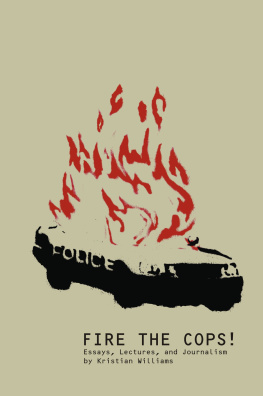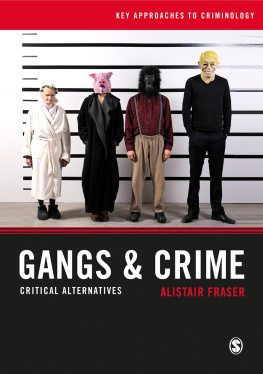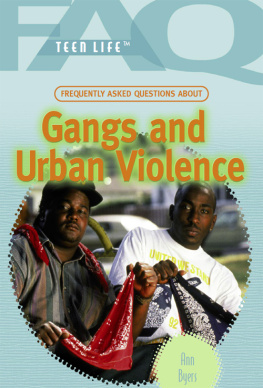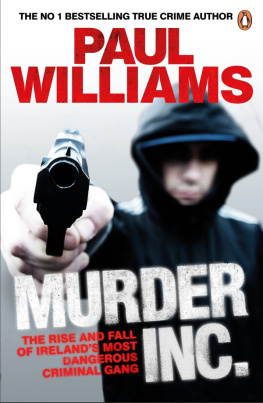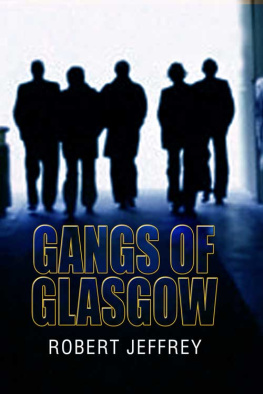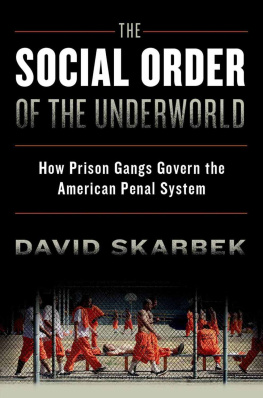Foreword: Street Fights and Revolution in the City of Roses
Robert Evans
For almost three years now, Ive reported on the running street battles between Portland-area antifascists, the Proud Boys, and police. In that time Ive watched the citys antifascist movement shrink, from a broad popular coalition to a smaller, hardened core of activists. This is less reflective of antifascisms popularity in the City of Roses than it is of the danger of confronting the far right in the streets. Gunfire is now very close to guaranteed at any sizable confrontation.
As Kristian Williams ably traces, the Proud Boys got their start as a gang. As we enter the Biden years, they might seem on the edge of morphing into an insurgency. This impression is deceptive, though. The Proud Boys have not gone out of their way to win the hearts and minds of the public. Instead, theyve supplicated themselves to the levers of power. Theyve volunteered their time and efforts to act as an armed wing of the Republican Party and an auxiliary to the local police. The police in the Pacific Northwest have responded by allowing the Proud Boys and their affiliates to run wild, without interference, so long as their targets are anyone vaguely on the left.
Gangs and states very much exist on the same continuum, and the conflicts between them largely arise from the ability of gangs to challenge the states monopoly on power. What weve seen with the Proud Boys is that many agents of the state are willing to approve the legitimate use of violence as long as these foot soldiers for fascism do not fundamentally challenge their benefactors. As Covid-19 precautions are increasingly politicized, Proud Boys have been allowed to accost school board meetings and threaten schools themselves in the name of medical freedom.
It was not until I read Kristians work that I started to think about the Proud Boys and what they represent in a much more functional manner. At the end of the day, these far-right groups arent just showing up to fight for the hell of it; theyre presenting a very specific audience with an alternative view of what the state could be. The widespread refusal of American law enforcement to act against the Proud Boys suggests that this audience has liked what theyve seen.
On the other side of things, antifascists have come to increasingly resemble an insurgency. The growth of mutual aid networks accelerated in 2020 thanks to the pressures of the coronavirus and the BLM protests. This has led to a situation J. Edgar Hoover would have abhorred, and it has at times provided anarchism in particular with the best popular PR in modern U.S. history.
But I have seen uglier things develop on the left as well. Kristian notes that Anti-Racist Action and the SHARPs started life as a gang, which turned toward the cause of racial justice. In some places, particularly Portland, I see a risk that organized antifascism will evolve away from this and shift more into the shape of a gang. Ive seen elements of this on the ground in Portland: small groups declaring themselves security and using forcepaintball guns and maceon neighbors or fellow protesters who break the rules.
Whoever fights monsters should see to it that, in the process, they do not become a monster. The same is true with fighting a gang like the Proud Boys. In the past year, I have watched as paintball and airsoft guns, as well as the indiscriminate deployment of bear mace, have gone from staples of far-right street fighters to ubiquitous on both sides. The appeal is obvious; when youre shot with a paintball, its natural to want to shoot back.
But I think yielding to the far right in this way is its own sort of defeat. There are times when weapons must be used, but nine times out of ten a fire extinguisher loaded with paint does more damage than an airsoft rifle ever could. Rotten eggs damage gear more than paintballs. Raw force will always avail antifascists less than cleverness and surprise.
Law enforcement would, of course, love nothing more than to see decentralized, horizontal packs of affinity groups turn into something more centralized, violent, and foolish. They would much rather deal with a street gang, engaged in running gun battles and casual brutality to bystanders, than a proper insurgent force that offers a compelling alternative to the state.
In tracing the devolution of the Black Panthers and the history of the Blackstone Nation, Kristian provides rubrics for how the future of antifascism and the militant left might soon look. Todays activists would do well to pay attention to these historic examples. This is vital work, because only with such a rubric can we hope to avoid the missteps of the past.
September 2021
Portland, Oregon
Questioning under Caution
An Introductory Note
Bloods and Crips. Rangers and Panthers. Police and thieves. Proud Boys and Antifa. Insurgency and counterinsurgency. Revolution and counterrevolution. Politics and crime.
How different are these? And how are they alike?
In these three essays, written over the course of a dozen years, I explore the complex intersections between gangs and politics and argue that government and criminality are intimately related. The first essay, The Other Side of the COIN, examines the adaptation of the strategies and techniques of counterinsurgency warfare to domestic law enforcement, with particular attention to the policing of gangs. In the second essay, Gangs, States, and Insurgencies, I pose the next obvious question: If the police take a counterinsurgency approach to combating gangs, what does that suggest about the relationship between gangs and insurgencies and the states attitude toward each? The third essay, Street Fights, Gang Wars, and Insurrections, applies my analysis to two groups that are often in the headlinesthe Proud Boys and Antifaand considers the ways that they each adhere to or diverge from the idea of the politicized gang, the degree to which that mode of organizing coheres with their politics, and the very different treatment each has received from the authorities. Throughout the book, I emphasize both the potential and the limitations of the gang form for liberatory politics.
In a sense, a gang is an inherently political formation and set of activities, involving the concentration and application of power, thereby influencing the distribution of resources within a community. The same may be said of the police, whatever the cops themselves happen to think about it. Both are therefore political, whether or not they self-consciously adhere to an identifiable ideology. When gangs do adopt an explicitly political program, the results tend to be mixed. Even with a new orientation, which will sometimes bring prestige and other benefits, they will nevertheless likely retain, and be constrained by, the gangs established structure, culture, and strategy. Ultimately, an organizations form may matter as much as the intentions of even its most powerful leaders.
As I researched these questions, and especially as I saw their increasing relevance for contemporary events, my thinking on gangs changed considerably. I have edited the earlier writing to reflect the ways that my ideas have developed, but astute readers may yet notice some shifts in tone, changes in perspective, and subtle differences in terminology between one essay and the next. To some degree that is an inevitable, if unfortunate, result of repurposing material more than a decade after it was produced. But there is also an element of ambiguity and approximation inherent to the subject.
Resisting Definition
What it is that makes a group a gang is always contested, and the gang form itself may be more fluid than taxonomists would prefer.


